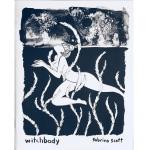Hello, beautiful creatures.
A common complaint I’m seeing about Pagan, polytheist, and occult writing is that a given writer’s work isn’t “spiritual enough,” however the complainant defines that. In other words, what the writer is talking about isn’t really Paganism, or witchcraft, or Heathenry, or Druidry, or occult, by whatever metric the complainant is using to gauge those things. The work is too focused on pop culture, or current events, or sports, or whatever secular and temporal issue the complainant doesn’t like. It’s too much “of this world,” if you will.
Recently, again and again, the common complaint is that the work is too political… meaning that the complainant doesn’t like the writer’s politics. I’ve written about the perils of apoliticality before, but rather than asking you to go back and reread those pieces, I’ll summarize my points here:
- Politics is just another way of negotiating power.
- Claiming to be apolitical is a way of dodging responsibility for what you do with your power.
- Dodging responsibility is giving away your own power.
- Giving away your power is a really bad idea.
Still with me? Great.
Every time I see someone complaining about a particular piece advancing a political agenda, I’m reminded of Dorothy L. Sayers’ “Creed or Chaos?” in which she writes, “‘Take away theology and give us some nice religion’ has been the popular slogan for so long that we are likely to accept it, without inquiring whether religion without theology has any meaning.” Similarly, I think it’s worth wondering what use a spiritual or religious path without values can possibly have. My very dear Pagans, polytheists, magical practitioners, and all you other weirdos out there, do we honestly not understand that our paths and practices have values built into them? Do we truly not believe that the gods want us to behave in certain ways, which implies the existence of values? Do we really not get that power is power?
Let’s Play “Unpopular Opinion”
Here’s where I break down and do something I once swore a grave and terrible oath I would never, ever do, and play the “Unpopular Opinion” game. Today’s unpopular opinion is that, while people might complain that there isn’t enough esoteric content that isn’t beginner-level introductory pabulum, no one actually wants higher-level material, because that means doing work: work that affects the real world, work which demands that we change and grow, work which is challenging, difficult, and not what we were expecting. Work which is uncomfortable and scary, work that makes us see things about ourselves and the world around us that we’d frankly rather not see.
It means being responsible, and responsibility is uncomfortable.
The unpleasant, unfortunate, unavoidable truth is that most modern forms of Paganism, polytheism, and occultism—and emphatically most modern American iterations of same—are, at heart, little more than watered-down Protestant Christianity with a thin coat of New Age whitewash (pun intended), concocted for the express purpose of making white people comfortable and reassuring us about our essentially libertarian individualism.
That’s kind of a confrontational statement, so I want to unpack it a little.
What I mean is that, in my observation, most modern p-words seem not to have really thought through the full ramifications of our putative beliefs and practices. We might pay lip service to some notion of wyrd, virtue, or (sigh) karma1 as a guiding force in our moral and ethical decisions, and we might attend religious or spiritual services at a covenstead, a grove, a grotto, or a lodge, but when push comes to shove, we still think of things in Christian terms. We’re still going to “church,” and we’re still trying to avoid sin and achieve salvation. We have, in essence, laid a veneer of “paganism” over our unexamined core beliefs and values, which in the United States are largely a sort of watered-down Christianity.
I specified “Protestant” because, according to the Pew Research Center’s latest study, roughly half of America identifies as some flavor of Protestant.2 Moreover, the history and culture of the United States are positively soaked through with a peculiarly American set of Protestant values, which we can see written into the founding documents of the nation. It’s also worth noting that these values were codified by white landholders—and, in many cases, slaveholders—and that they cater to the specific concerns of white people. Property rights and other forms of wealth are conflated with political franchise and other forms of power to establish the moral and spiritual superiority of the individual man: not “person,” but “man,” meaning “adult white male with money and power.” The value of that individual man’s relationship with God, unmediated by hierarchical religious functionaries, translates neatly into the valorization of the individual will as against the authoritarian collective. Similarly, the notion of a moral justice which transcends temporal authority elevates revolution against that authority from a potentially necessary sin to a kind of noble virtue. One can argue the merits and flaws of various aspects of those values, but it’s beyond question that they derived in great part from the religious and philosophical values of the authors of those documents, and are squarely in the tradition of late-Enlightenment Protestant libertarianism.
All of which is to say:
- American Protestant Christianity has a history of holding a particular set of values;
- these values have been codified as “American values”;
- these values exist specifically to consolidate and defend power in the hands of white people, specifically white men;
- and modern American Paganism has largely reiterated those values without really examining them.
I’ll note in passing that none of these observations is particularly innovative or groundbreaking. People of color have been saying these things for decades.
What do I mean when I say that Pagans are reiterating those values, unexamined? Here’s a brief sampling, gleaned from the comments of the Facebook share of Cyndi Brannen‘s recent post about white supremacy in witchcraft:
- “I don’t see color.”
- “Talking about race just fuels hatred!”
- Claims that white people are an oppressed minority.
- References to “Irish slaves.”
- “Where’s this white privilege, so I can get some?”
- Claims that discussing racism is racist.
- Claims that Social Justice Warriors are ruining Paganism.
- Claims that Social Justice Warriors are ruining Patheos.
- “Don’t label me just because I’m white!”
- White people making references to “our people.”
- Laments about the poor quality of the content and threats to stop reading.
And so on. I’m reminded of Helen Lewis‘ maxim that “the comments on any article about feminism justify feminism.” Similarly, it seems that the comments on any article about anti-racist work demonstrate the desperate need for that work. I’ll also note that the handful of people of color responding to these responses have been either ignored or mocked, in some cases using overtly racist tropes and language.
White Fragility as a Spiritual Path
That list of responses provides a perfect snapshot of what Robin DiAngelo calls “white fragility,” which she defines as…
a state in which even a minimum amount of racial stress becomes intolerable, triggering a range of defensive moves. These moves include the outward display of emotions such as anger, fear, and guilt, and behaviors such as argumentation, silence, and leaving the stress-inducing situation. These behaviors, in turn, function to reinstate white racial equilibrium. (“White Fragility,” in International Journal of Critical Pedagogy, Vol. 3, No. 3 (2011)
Looking back at that list of responses, I’m struck by the eerie accuracy of DiAngelo’s definition of white fragility. Anger, fear, guilt, and aggression are all on display here, all in defense of white supremacy. For some Pagans, the core of their belief system isn’t Paganism, polytheism, witchcraft, or magic: it’s whiteness. Whiteness is their god, their path, their religion. This observation isn’t limited to overtly-racist sacks of hot trash like the Asatru Folk Assembly. It includes everyday white people who would deny having a racist bone in their bodies, and who would be horrified at the suggestion that their words derive from a host of unexamined, deeply rooted beliefs which are, at their core, racist.
Do we want books, blogs, and other content about deep spirituality, something more than another Wicca 101 book or a Tumblr blog on Polytheism for Beginners? Maybe we should try doing the shadow work of rooting out our own racism, and confronting our own white fragility. Maybe we should explore the interrelation of the individual and the community through the lens of community service. Maybe, just maybe, we should look at the heart of the fears that arise within us when someone dares to suggest that white people are complicit in racism and white supremacy, and that American Pagans, polytheists, and occultists are just as complicit as the rest of white America.
And then, maybe we should do something about that.
As I’ve said before, our actions derive from our truest beliefs, our core values. Don’t tell me what you believe. Show me what you do, and I’ll know what you believe.
Until next time, dear ones. ♥
[A tip of the cap to Cyndi Brannen for writing the fantastic piece which inspired this one, and to David Salisbury for reminding me about Robin DiAngelo’s work on white fragility. And yes, the title of this post is a play on Milan Kundera’s bestselling 1984 novel The Unbearable Lightness of Being.]

- Look, do I have to explain why using “karma” here is a problem? I do? Okay, here’s the brief précis: if you’re not a practitioner of an Indian or Asian religion (such as Buddhism, Hinduism, Jainism, or Sikhism), you are using a religious concept which isn’t yours in ways that the folks it belongs to don’t use it, to mean things it doesn’t actually mean. That’s a problem.
- The next-largest religious group in the US is Catholicism, which I’m exempting from this criticism because, despite its flaws, faults, and institutional horrors, cannot be said in any meaningful way to be “white-washed.” (TradCats and sedevacantists need not comment, thanks.)

















